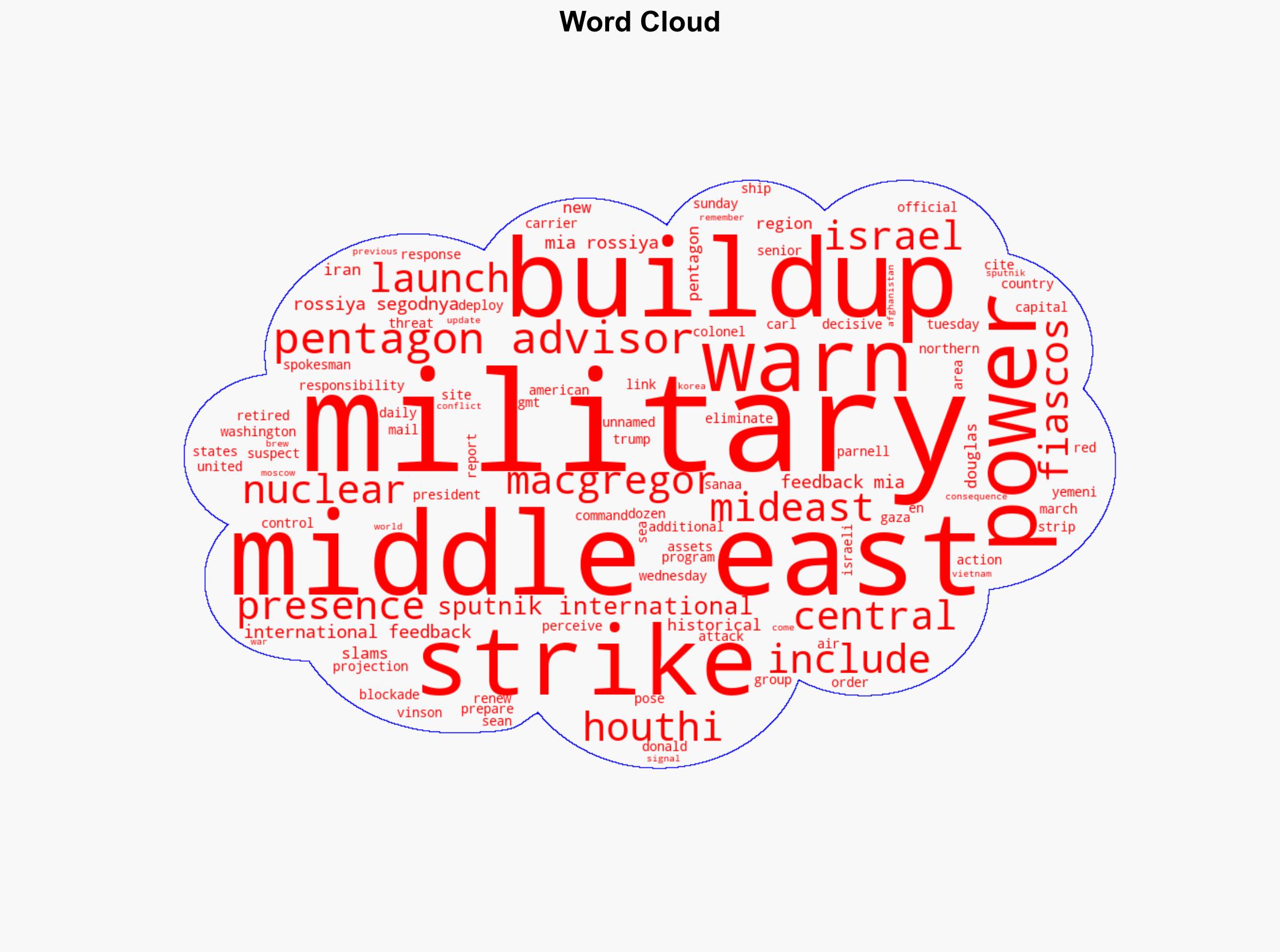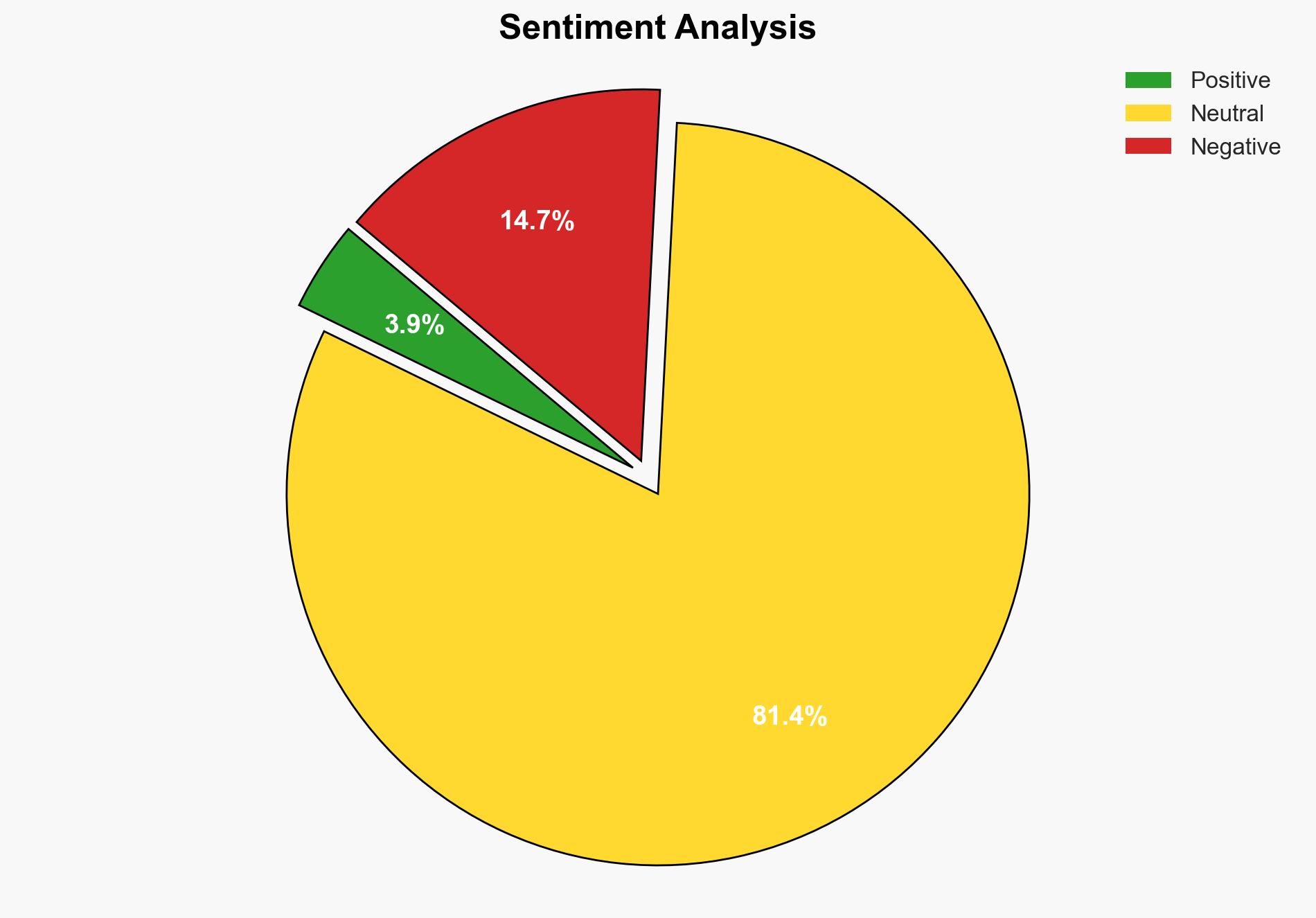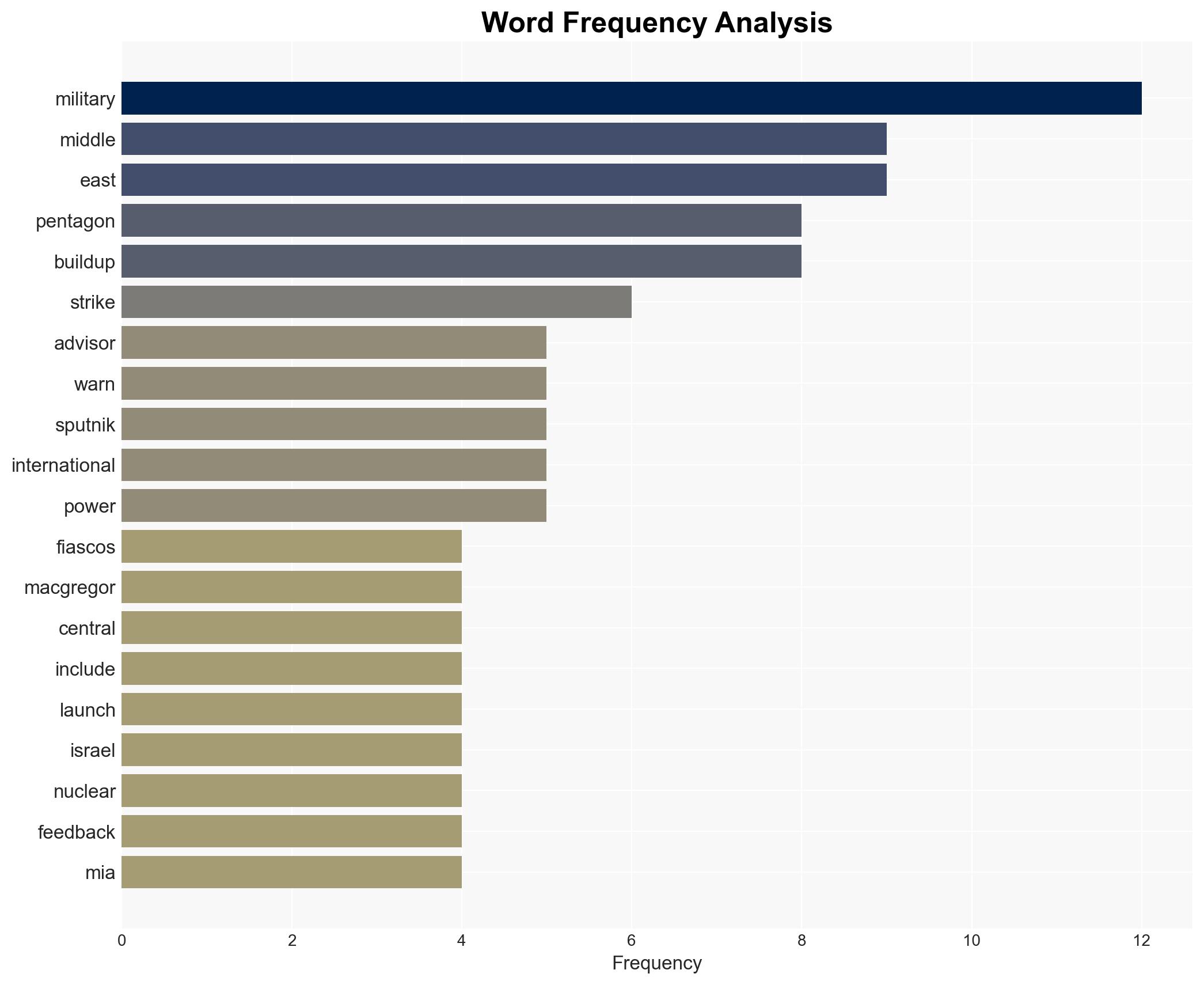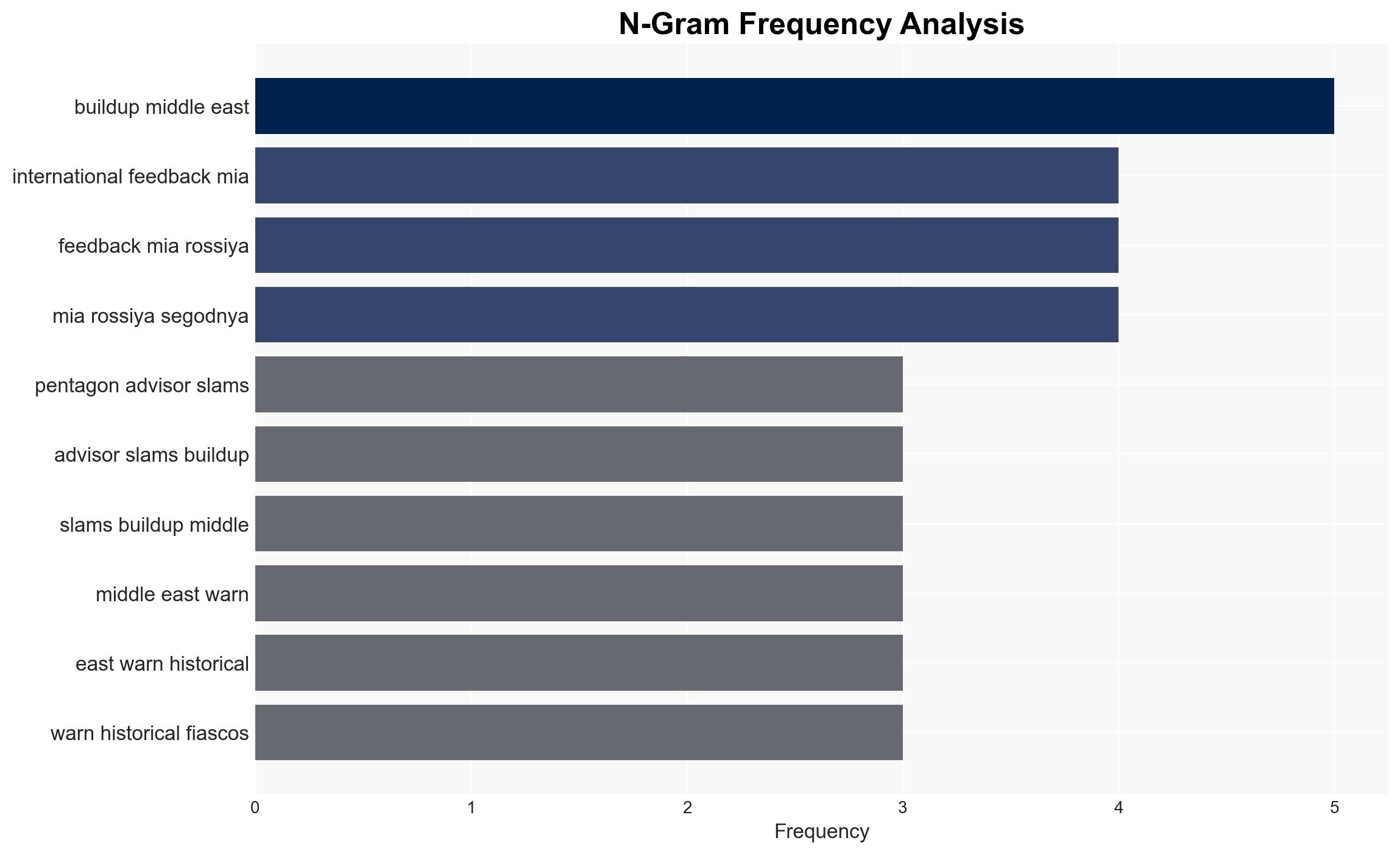Former Pentagon Advisor Cautions US Against Increasing Military Presence in the Middle East – Sputnikglobe.com
Published on: 2025-04-06
Intelligence Report: Former Pentagon Advisor Cautions US Against Increasing Military Presence in the Middle East – Sputnikglobe.com
1. BLUF (Bottom Line Up Front)
The report highlights concerns raised by Douglas Macgregor regarding the potential escalation of military presence by the United States in the Middle East. Historical precedents suggest significant risks associated with such actions, including the possibility of repeating past military failures. The deployment of additional air assets and the Carl Vinson carrier strike group’s involvement in the region are noted. The situation is further complicated by tensions involving Israel and Iran, as well as ongoing conflicts in Yemen.
2. Detailed Analysis
The following structured analytic techniques have been applied for this analysis:
General Analysis
The buildup of military forces in the Middle East by the United States is seen as a potential precursor to increased conflict in the region. Historical analysis indicates that similar actions have led to prolonged engagements with significant human, economic, and political costs. The recent military actions in Yemen and the strategic positioning of naval assets suggest an escalation in military readiness. Additionally, the potential for Israeli strikes on Iranian nuclear sites adds another layer of complexity to the regional security landscape.
3. Implications and Strategic Risks
The primary risks include destabilization of the Middle East, increased anti-American sentiment, and the potential for retaliatory actions from regional actors. The economic implications could involve disruptions to global oil markets and increased defense spending. National security concerns are heightened by the possibility of direct confrontations with state and non-state actors in the region.
4. Recommendations and Outlook
Recommendations:
- Engage in diplomatic efforts to de-escalate tensions in the Middle East and promote regional stability.
- Consider strategic partnerships and alliances to share the burden of regional security.
- Enhance intelligence capabilities to better anticipate and respond to emerging threats.
Outlook:
Best-case scenario: Diplomatic efforts lead to a reduction in military tensions and a stabilization of the region.
Worst-case scenario: Escalation leads to a broader regional conflict involving multiple state and non-state actors.
Most likely scenario: Continued military presence with periodic flare-ups of conflict, requiring ongoing strategic adjustments.
5. Key Individuals and Entities
The report mentions significant individuals and organizations, including Douglas Macgregor, Sean Parnell, and the Carl Vinson carrier strike group. These entities play critical roles in the current strategic landscape of the Middle East.





